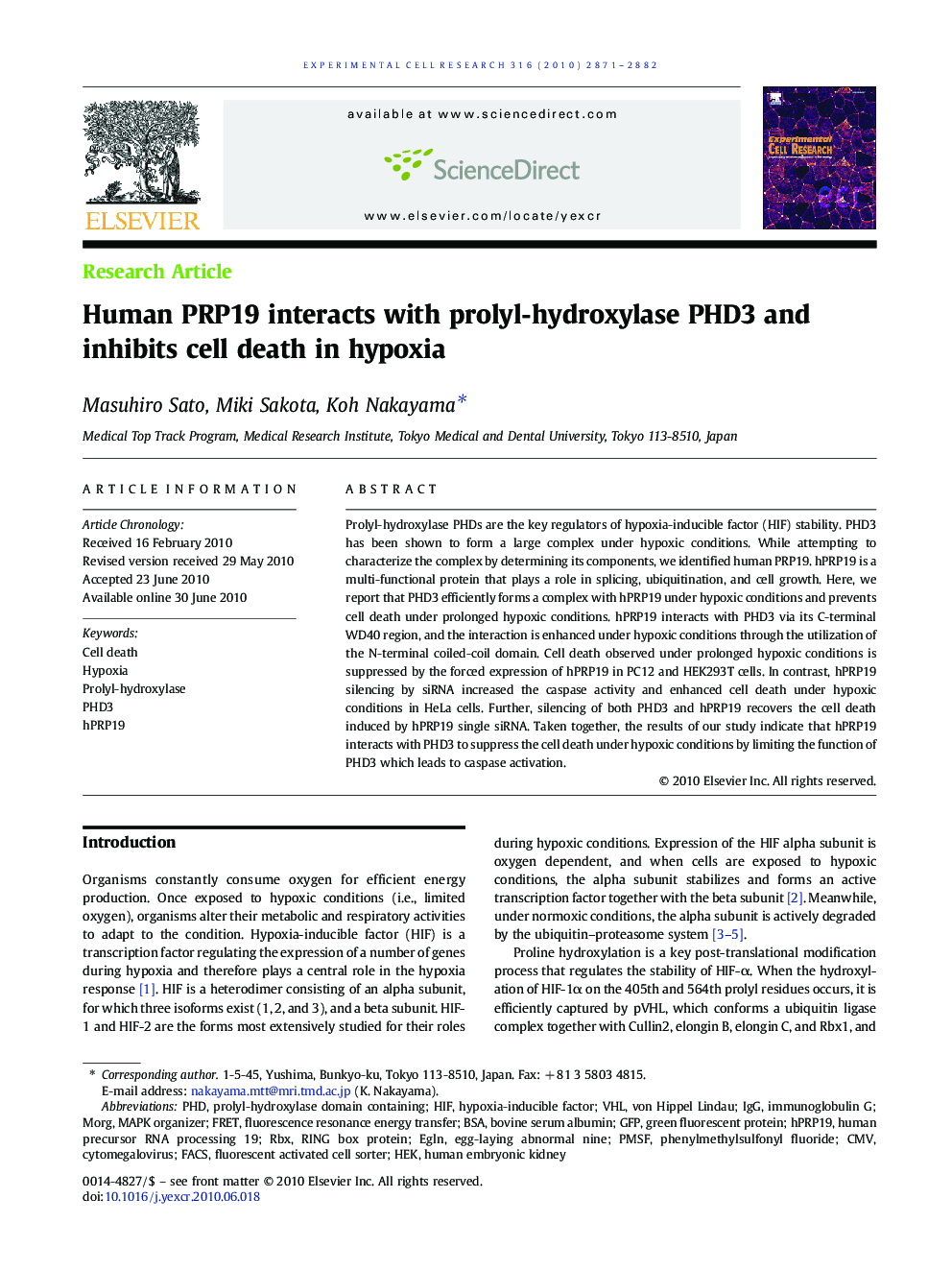| Article ID | Journal | Published Year | Pages | File Type |
|---|---|---|---|---|
| 2131967 | Experimental Cell Research | 2010 | 12 Pages |
Prolyl-hydroxylase PHDs are the key regulators of hypoxia-inducible factor (HIF) stability. PHD3 has been shown to form a large complex under hypoxic conditions. While attempting to characterize the complex by determining its components, we identified human PRP19. hPRP19 is a multi-functional protein that plays a role in splicing, ubiquitination, and cell growth. Here, we report that PHD3 efficiently forms a complex with hPRP19 under hypoxic conditions and prevents cell death under prolonged hypoxic conditions. hPRP19 interacts with PHD3 via its C-terminal WD40 region, and the interaction is enhanced under hypoxic conditions through the utilization of the N-terminal coiled-coil domain. Cell death observed under prolonged hypoxic conditions is suppressed by the forced expression of hPRP19 in PC12 and HEK293T cells. In contrast, hPRP19 silencing by siRNA increased the caspase activity and enhanced cell death under hypoxic conditions in HeLa cells. Further, silencing of both PHD3 and hPRP19 recovers the cell death induced by hPRP19 single siRNA. Taken together, the results of our study indicate that hPRP19 interacts with PHD3 to suppress the cell death under hypoxic conditions by limiting the function of PHD3 which leads to caspase activation.
